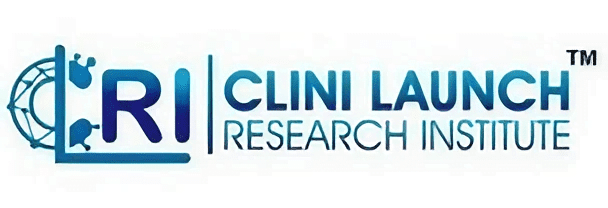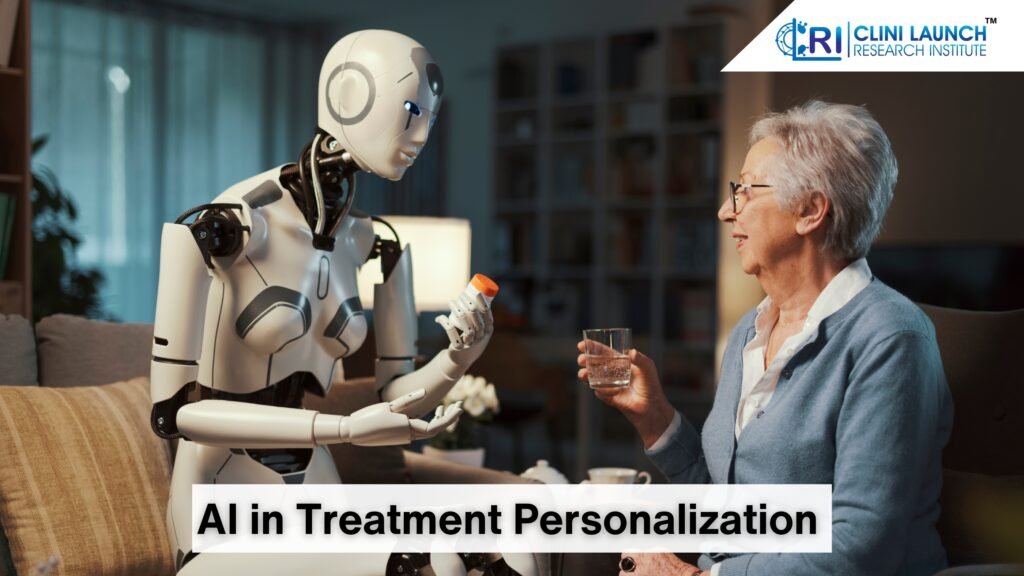Imagine a future where healthcare isn’t a one-size-fits-all approach. A future where treatments are designed specifically for you, taking into account your unique genetic makeup, medical history, and lifestyle. This is the promise of precision medicine, also known as personalized medicine. By leveraging the power of Artificial Intelligence (AI) and Machine Learning (ML), precision medicine is revolutionizing how we diagnose and treat diseases.
Traditionally, medicine has relied on a population-based approach. Treatments are designed for the “average” patient, often leading to suboptimal outcomes for some individuals. This can be due to variations in how our bodies respond to medications or the presence of underlying genetic factors. Precision medicine aims to bridge this gap by tailoring treatment plans to the specific needs of each patient, offering a more individualized treatment approach.
AI in Treatment Personalization
AI plays a crucial role in precision medicine by analyzing vast amounts of complex data. This data can include:
- Genetic information: Our genes hold a wealth of information about our susceptibility to diseases and how we might respond to certain medications. AI can analyze an individual’s genetic makeup to identify potential risk factors and predict how they might react to specific treatments.
- Medical records: A patient’s medical history, including past diagnoses, medications taken, and treatment responses, is a valuable resource for AI algorithms. By analyzing this data, AI can identify patterns and trends that can inform personalized treatment plans.
- Lifestyle factors: Diet, exercise, and environmental factors can all influence how our bodies respond to treatment. AI can take these factors into account when generating treatment recommendations.
By analyzing this multifaceted data, AI can:
- Improve diagnosis: AI algorithms can analyze medical images, such as X-rays and MRIs, with greater accuracy than humans, leading to earlier and more precise diagnoses. This allows for the early intervention of treatment plans, improving patient outcomes.
- Predict treatment response: AI can analyze data from past clinical trials and patient responses to predict how an individual patient might respond to a specific treatment. This allows doctors to choose the most effective course of action from the outset, reducing the trial-and-error phase of treatment.
- Identify new drug targets: AI can analyze vast datasets to identify potential new targets for drug development. This allows for the creation of more targeted therapies that are more effective and have fewer side effects.
Read: Advanced Machine Learning In Medical Imaging Classified 2024
Machine Learning in Healthcare Customization
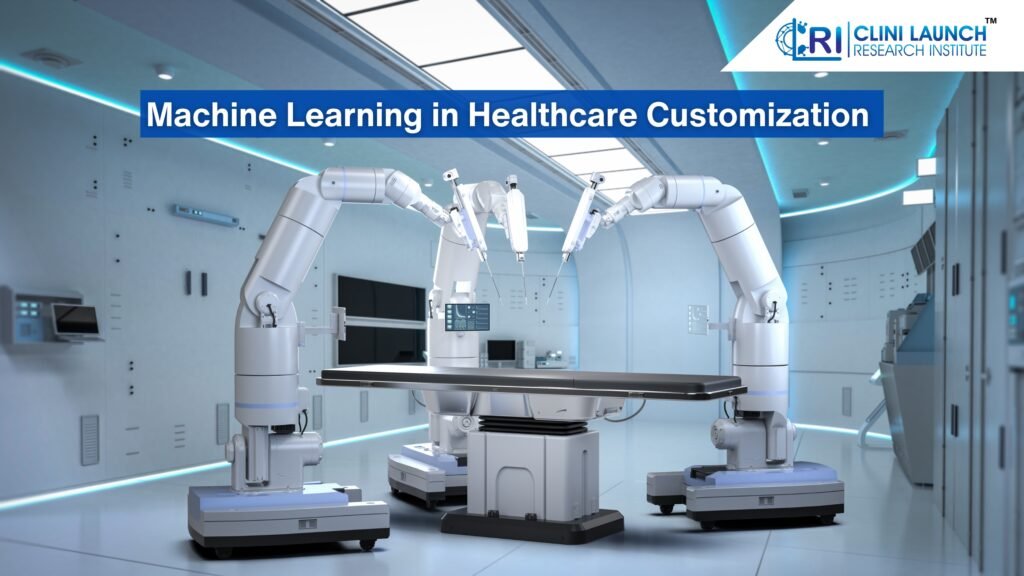
Machine learning (ML), a subset of AI, is another powerful tool in the precision medicine arsenal. ML algorithms can learn from data without being explicitly programmed, constantly improving their ability to analyze and generate insights. In healthcare customization, ML is used for:
- Developing risk prediction models: ML algorithms can analyze patient data to identify individuals at high risk for developing specific diseases. This allows for early intervention and preventative measures to be taken.
- Creating personalized treatment plans: ML algorithms can analyze a patient’s unique data profile and recommend treatment plans that are most likely to be successful. This can include tailoring medication dosages and treatment schedules for optimal effectiveness.
- Monitoring patient progress: ML algorithms can be used to monitor a patient’s response to treatment in real-time. This allows for adjustments to be made to the treatment plan as needed, ensuring the best possible outcome.
The Benefits of Precision Medicine
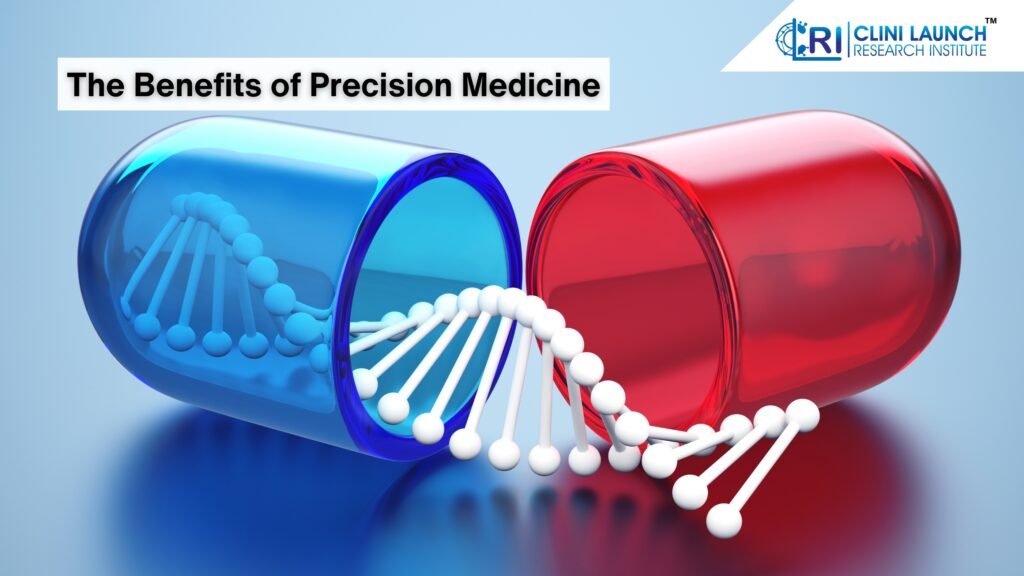
The potential benefits of precision medicine are numerous:
- Improved patient outcomes: By tailoring treatments to the individual, precision medicine has the potential to significantly improve patient outcomes. This includes increased effectiveness of treatments, reduced side effects, and improved overall patient well-being.
- Reduced healthcare costs: By focusing on targeted therapies and preventative measures, precision medicine can help to reduce overall healthcare costs. This is because it avoids the use of ineffective treatments and reduces the need for hospitalization.
- Drug discovery breakthroughs: Precision medicine can accelerate drug discovery by identifying new targets for drug development. This can lead to the creation of more effective and personalized treatments for a wider range of diseases.
Challenges and Considerations
While the future of precision medicine is bright, there are still some challenges to overcome:
- Data privacy and security: The vast amount of data required for precision medicine raises concerns about data privacy and security. Robust data protection measures need to be in place to ensure patient confidentiality.
- Accessibility and cost: Precision medicine treatments can be expensive, and ensuring equitable access for all patients remains a challenge. Healthcare systems will need to find ways to make these treatments more affordable and accessible.
- Regulatory frameworks: Regulatory frameworks need to adapt to keep pace with the rapid advancements in precision medicine. This includes ensuring the ethical development and use of AI-powered tools in healthcare.
The Future of Precision Medicine
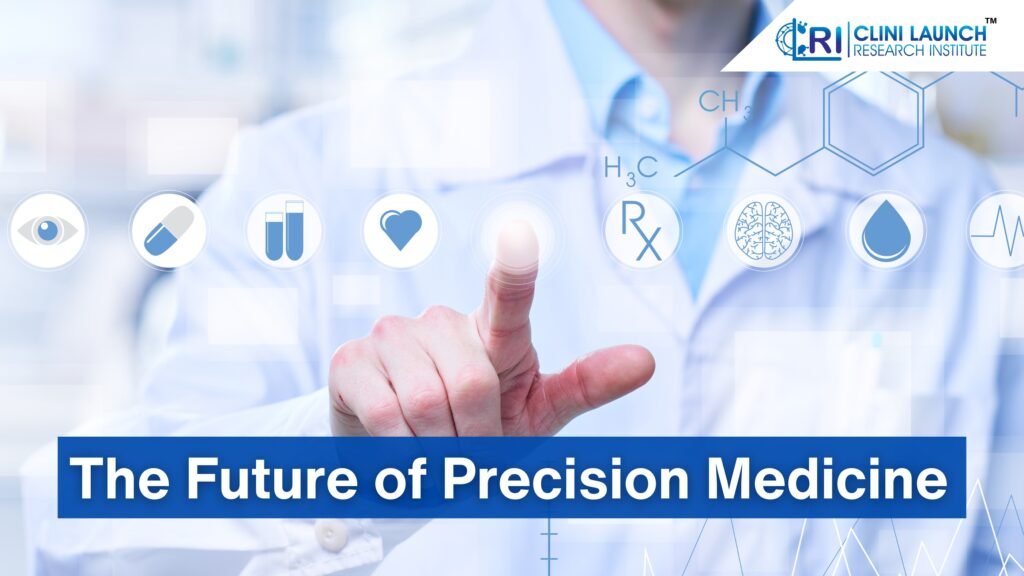
Despite the challenges, the future of precision medicine is full of promise. As AI and ML technologies continue to evolve, we can expect to see even greater advancements in this field. Here’s a glimpse into what the future might hold:
- Integration with wearable technology: Wearable devices that track our health data in real-time can be seamlessly integrated with AI-powered platforms. This will allow for continuous monitoring of vital signs and further personalization of treatment plans.
- Focus on preventative care: Precision medicine has the potential to shift the focus from reactive treatment to proactive prevention. By identifying individuals at high risk for certain diseases, preventive measures can be taken to prevent the onset of illness altogether.
- Genomic medicine: As our understanding of the human genome continues to grow, so too will the role of genomics in precision medicine. By analyzing an individual’s complete genetic makeup, doctors will be able to identify predispositions to diseases and tailor treatment plans accordingly.
The Road Ahead
Precision medicine represents a paradigm shift in healthcare. By leveraging the power of AI and ML, we are moving towards a future where treatments are designed specifically for the individual. This holds immense potential for improving patient outcomes, reducing healthcare costs, and ultimately, revolutionizing the way we approach healthcare altogether.
However, realizing the full potential of precision medicine requires a collaborative effort. Healthcare providers, researchers, policymakers, and technology companies all need to work together to address the challenges and ensure equitable access to these advancements. As we move forward, it’s important to remember that AI and ML are tools to be used in conjunction with human expertise, not replacements for it. The future of healthcare lies in the synergy between cutting-edge technology and the irreplaceable human touch.
If you are a healthcare enthusiast who wants to pursue AI & ML for future prospecting or transition, consider CliniLaunch – best AI & ML in healthcare training institute in India.
Content Writer | Content Marketer | Ex-Academic Research Associate
I am a passionate content writer with 7+ years of experience crafting engaging copy across various industries. Currently, I specialize in healthcare education, focusing on empowering individuals through informative and accessible content.In my current role at CliniLaunch, I create compelling marketing materials for healthcare-related courses, including Clinical Research, Medical Coding, Medical Scribing, Bioinformatics, Biostatistics, Clinical SAS, AI & ML in healthcare, and more.Connect with me at aakashjha8@gmail.com
